What causes flatulence?
Posted in General Health & Wellness on July 6, 2011. Last modified on April 29, 2019. Read disclaimer.

Though it may sometimes be embarrassing or even uncomfortable, passing gas is normal -- most people do it 14 to 23 times a day.
The two primary causes of flatulence are swallowed air and the breakdown of undigested foods by harmless bacteria in the large intestine (colon).
Swallowed air
We routinely swallow small amounts of air when we drink or eat, though eating or drinking rapidly, smoking, chewing gum or wearing loose dentures can make the problem worse. Belching is the normal means of eliminating swallowed air from the stomach but a small amount may make it to the large intestine where it gets released through the rectum.
Bacterial breakdown of undigested foods
Enzymes normally help the body to digest and absorb certain carbohydrates (sugars, starches and fibers) but sometimes these enzymes are in short supply or completely lacking. In those cases, when these undigested foods make their way from the small intestine to the large intestine, it becomes the work of harmless bacteria to break down these foods. In the process, these bacteria produce several gases including foul smelling methane.
+ Free Shipping & Returns on Eligible Items.
(*Amazon's Top 100 list updated hourly.)
Which foods are most often associated with causing flatulence?
Everyone is different -- foods that cause gas in one person may trigger no response in another. Age, ethnicity, certain health conditions, how and what we eat -- all can impact the amount of flatulence produced.
Foods most often associated with causing gas, however, are ones that are high in sugars, starches and fiber:
- beans
- soft drinks, juices
- milk products: cheese, ice cream, packaged foods containing lactose
- foods with sorbitol: dietetic foods, sugar-free candies and gums
- vegetables: raw broccoli, cabbage, raw carrots, peas, brussels sprouts, onions, artichokes, asparagus
- fruits: pears, apples, peaches
- whole grains: whole wheat and bran
What steps can be taken if we feel our gas output is excessive?
1. Change your diet:
- taking a trial and error approach, try to identify which foods are most problematic. in some cases, such as with high fiber foods, your body may adapt over time and the flatulence issue may subside.
- take lactose-digesting enzymes (Lactaid, Lactrase) and/or sugar-digesting enzymes (Beano) before meals
- try switching to lactose-reduced milk products
- eat fewer fatty foods with meals. fatty foods take longer to pass through the stomach and into the small intestine
2. Reduce amount of air you swallow:
- eat and drink more slowly
- stop chewing gum and eating hard candy
- make sure that dentures fit properly
3. Medicines:
- If the problem persists, visit your doctor. If the excess flatulence is due to an internal disorder such as irritable bowel syndrome (IBS), medicines may be prescribed or lifestyle changes may be in order.
Interesting tidbits:
- In terms of starchy foods, rice is the only one that does not cause gas.
- As for fibers, there are two basic types --
soluble (common in beans, oat bran, peas
and fruits -- it dissolves easily in water and becomes gel-like in the intestines) and insoluble (found in wheat bran and certain vegetables -- it passes essentially unchanged through the intestines). Surprisingly, it is the soluble fiber that causes much gas.
To learn more, visit Gas in the Digestive Tract at the Natiounal Institute of Health.

 Support for care givers
Support for care givers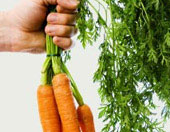 What's better: Organic, local or conventional produce?
What's better: Organic, local or conventional produce? What causes flatulence?
What causes flatulence?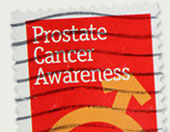 Prostate cancer symptoms and risk factors
Prostate cancer symptoms and risk factors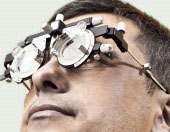 Early detection of eye diseases
Early detection of eye diseases Reduce stress with a gratitude journal
Reduce stress with a gratitude journal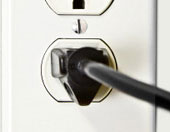 Home energy savings checklist
Home energy savings checklist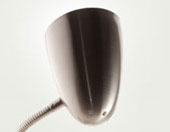 Quick tips for cutting your utility bills
Quick tips for cutting your utility bills